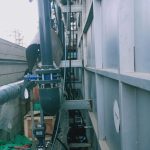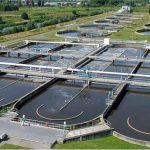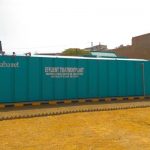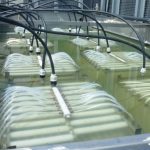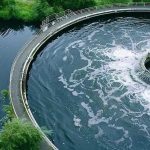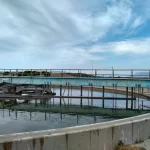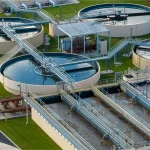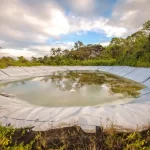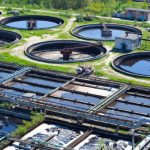-
-
Call for inquiry
-
B-21, Block-2, Gulshan-e-Iqbal
Karachi, Pakistan

Membrane Coagulation Reactor (MCR) – Revolutionizing Industrial Water Recycling in Pakistan
Introduction
In a world where water scarcity is rapidly intensifying, industries are under growing pressure to minimize freshwater consumption and adopt circular water practices. Pakistan’s industrial hubs – particularly Karachi, Lahore, and Faisalabad – face severe groundwater depletion and rising wastewater discharge issues.
To meet this challenge, Abamet Pakistan has developed and pioneered a groundbreaking innovation – the Membrane Coagulation Reactor (MCR). This next-generation hybrid wastewater treatment technology is redefining how industries recycle, reclaim, and reuse water.
What is the Membrane Coagulation Reactor (MCR)?
The Membrane Coagulation Reactor is a relatively new and advanced wastewater treatment system that combines coagulation, membrane filtration, and biological processes in a single, compact unit. Unlike conventional systems that require multiple tanks, pumps, and long retention times, the MCR integrates all these functions seamlessly, resulting in higher efficiency and reduced space requirements.
Key Features:
- Compact & modular design – ideal for industries with limited space availability.
- Superior removal of suspended solids, color, and organic pollutants.
- Low chemical and energy consumption due to optimized process integration.
- Consistent, high-quality treated water suitable for recycling and process reuse.
- Reduced sludge generation compared to conventional systems.
This hybrid system represents a major leap forward in sustainable water management, aligning perfectly with Pakistan’s environmental and industrial development goals.
Pioneered by Abamet Pakistan
Abamet has always been at the forefront of innovation in water and wastewater treatment technologies. The development of the MCR system is a result of extensive research, pilot testing, and engineering expertise focused on creating a solution that is both technically robust and economically viable for industrial users.
By integrating membrane separation technology with coagulation-based treatment, Abamet has created a system that offers unparalleled water recycling efficiency – setting new benchmarks for wastewater reuse in Pakistan.
Case Study: Rajby Industries – Leading by Example
The first-ever Membrane Coagulation Reactor (MCR) recycling plant in Pakistan was designed, supplied, and commissioned by Abamet Pakistan for Rajby Industries, a global leader in sustainable denim manufacturing.
- Treatment Capacity: 300,000 gallons per day (GPD)
- Annual Recycling: 108 million gallons (MGD) per year
- Application: Industrial wastewater recycling and reuse in process operations
- Impact:
- Drastic reduction in freshwater demand
- Lower discharge volumes
- Enhanced compliance with environmental regulations
- Promotion of circular water economy practices
This project stands as a landmark achievement in Pakistan’s industrial sustainability landscape – proving that advanced, locally developed technologies like the MCR can deliver global-standard performance while supporting national SDG commitments.
Why the MCR Matters
The MCR system isn’t just an innovation in engineering – it’s a solution for climate resilience and resource efficiency. By reducing the dependency on groundwater and enabling wastewater reuse, the technology directly supports multiple Sustainable Development Goals (SDGs):
- SDG 6: Clean Water and Sanitation
- SDG 9: Industry, Innovation, and Infrastructure
- SDG 12: Responsible Consumption and Production
- SDG 13: Climate Action
Furthermore, its compact footprint and energy-efficient operation make it ideal for urban industrial zones, where space and resources are at a premium.
Future of MCR in Pakistan
Following the success at Rajby Industries, several other industrial leaders – including AGTL, Liberty, and others – are exploring the adoption of MCR-based recycling plants. The technology has the potential to transform Pakistan’s industrial water landscape by enabling:
- Decentralized wastewater recycling systems within factories
- Reduced environmental load on municipal treatment infrastructure
- Improved compliance with EPA and international discharge standards
- Sustainable groundwater management through reduced abstraction
As industries continue to grow, the Membrane Coagulation Reactor offers a pathway to water-secure industrialization – one that balances economic growth with environmental responsibility.
Conclusion
The Membrane Coagulation Reactor (MCR) is more than a technology – it’s a movement toward a sustainable water future. By merging innovation, efficiency, and environmental stewardship, Abamet Pakistan has set a new precedent in industrial wastewater recycling.
With pioneering projects like Rajby Industries’ 300,000 GPD MCR plant, Pakistan is taking tangible steps toward achieving water circularity, reducing its carbon footprint, and strengthening climate resilience.
Innovating for sustainability. Engineering for the planet. Abamet is redefining the future of water – one drop at a time.

